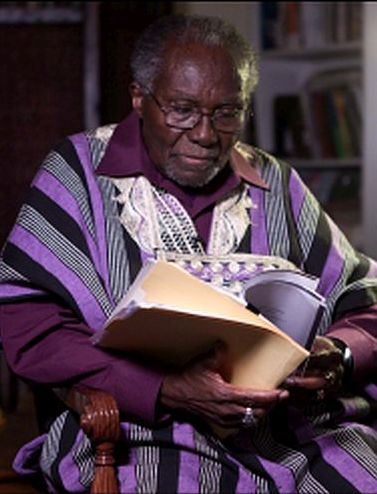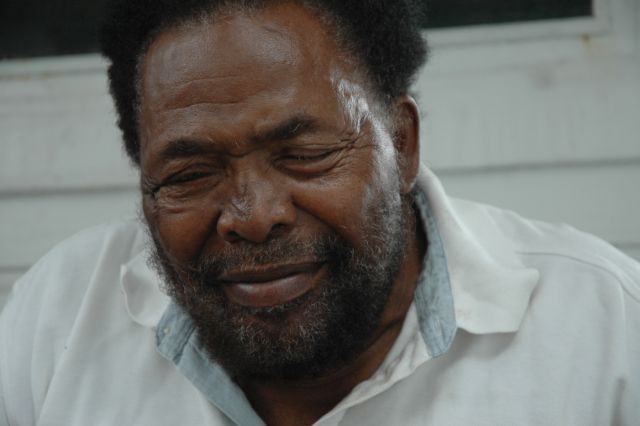Althea's mentor and professor Keith E. Baird, whose pioneering research in linguistic anthropology focused on the African Diaspora and the politics of language, died in July 2017 at age 94. His work centered on language as a tool for liberation and self-definition, not as a political tool against marginalized groups. Fluent or conversant in fourteen languages, Baird was an early advocate for the use of
Afro-American -- a term invoking cultural heritage rather than biology -- to refer to people of African descent in the United States.
At dinner and during hours of conversation with Keith E. Baird, along with his wife and fellow scholar Mary Twining Baird, in May 2017, he showed Althea a tome of books he described as the basis for his work on racialism, ethnicity and culture. As the two of them sat down, he gave Althea a lesson on the context of the term
Negro and how it was wrongly used to identify a people. She found herself transported back to one of the many classes she had taken from him as a doctoral student, taking in knowledge from a scholar with decades of experience researching the dynamics of the ways humans categorize one other. He was designating Althea to undertake the challenge of compiling and synthesizing his unfinished work.
Horace Gardner
He was born a slave in 1906 -- that is the way Horace Gardner introduced himself
the day he contacted me. He was looking for a writer to tell his story of growing up
in Jim Crow Georgia. During hours of phone interviews over several months, he told
me the story of working on plantations as a child; witnessing lynchings, then being
tasked to bury the bodies; his family encountering renowned gangsters on their way
to Florida, then his family eventually escaping to Florida, leaving behind the body of an uncle they could never find
after a KKK attack. This is a Southern story that Horace Gardner entrusted me to tell. He recorded hours of audio
and -- the only time we got to meet in person -- gave me the plastic bag filled with audio cassettes. Horace Gardner
died a few months later at the age of 101. His audio cassettes must be transcribed. I owe him and his family the chance
to bring his Southern heritage story to life. His book must be written.
Those same volumes Baird showed Althea are now in her possession for use in compiling his work. Once the project is complete, the books will be added to the nearly 10,000 volumes from his library and additional research which he bequeathed to the Auburn Avenue Research Library on African American Culture and History, Atlanta, Georgia. The scope of this compilation is such that it requires Althea's primary energy and attention. To fulfill her promise to Keith E. Baird, she needs your financial support.

